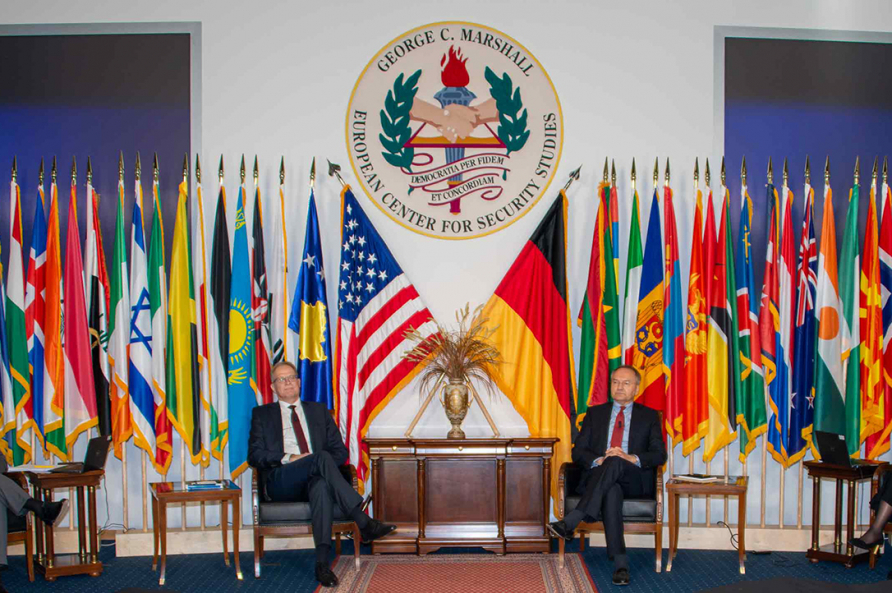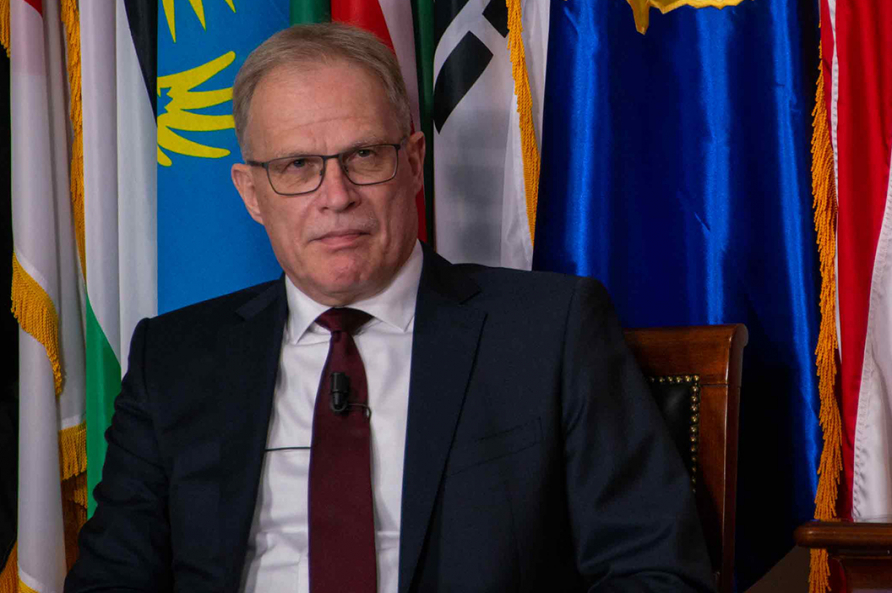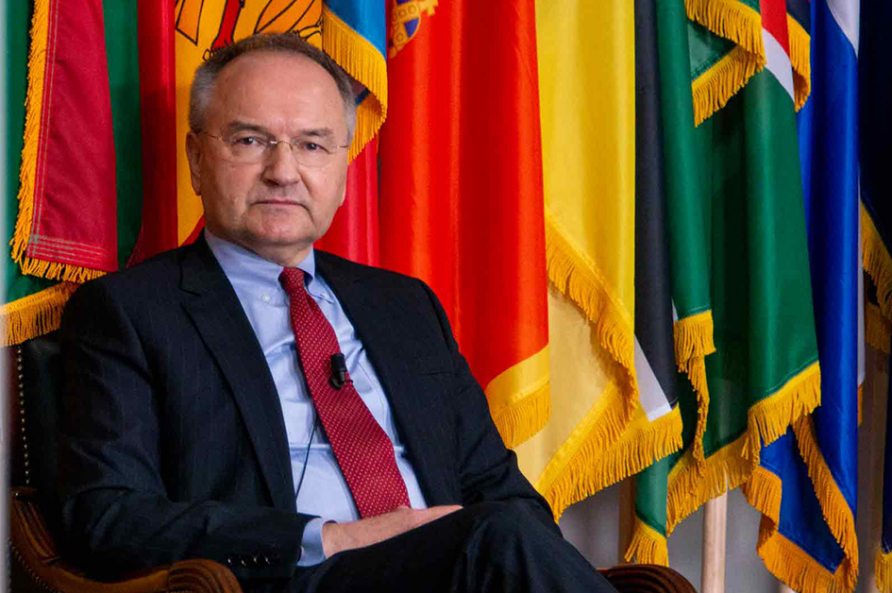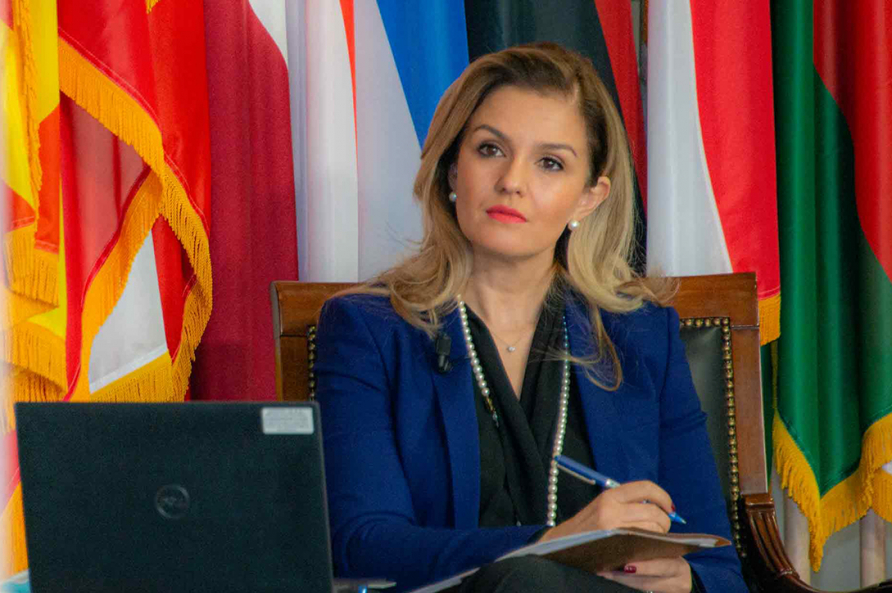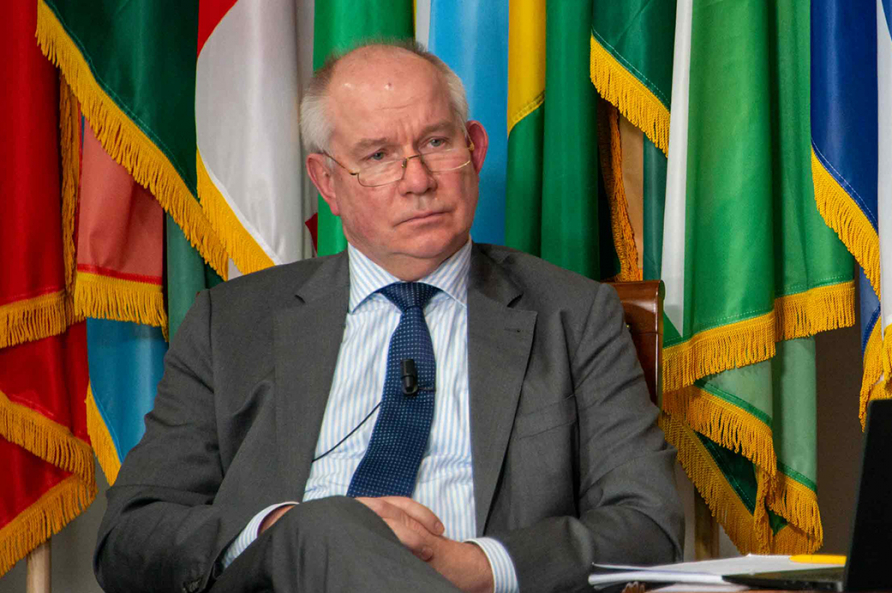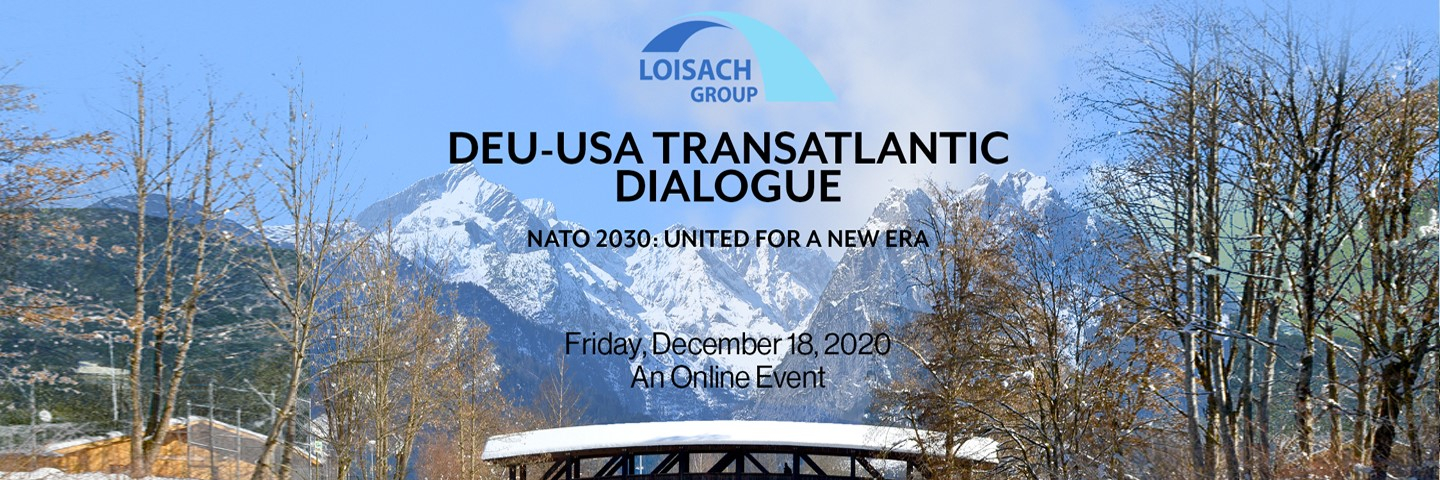
Marshall Center’s Loisach Group Hosts Analysis’ Discussions on ‘NATO 2030, United for a New Era’
By Christine June
Public Affairs Office
George C. Marshall European Center for Security Studies
GARMISCH-PARTENKIRCHEN (Dec. 18, 2020) – The George C. Marshall European Center for Security Studies’ Loisach Group met in Garmisch-Partenkirchen and online Dec. 18 to discuss “NATO 2030: United for a New Era” report sent to NATO Secretary General Jens Stoltenberg last month.
The Marshall Center and the Munich Security Conference created a partnership in August 2017 to commit to mutual cooperation in the European security dialogue. This partnership led to the establishment of the Loisach Group, which seeks to provide U.S. and German defense policymakers with sound recommendations for today’s security challenges.
“This unique forum aims at strengthening the German-American partnership by working together on finding common ground and solutions to emerging security challenges,” said Dr. Valbona Zeneli, Marshall Center’s chair of Strategic Initiatives Department.
This 11th meeting of the Loisach Group focused on the analysis of the “NATO 2030: United for a New Era” report.
“This 67-page report provided a concise analysis of the security and political environment of the new era of great power competition that we are lining in,” Zeneli said.
She added that the report provided 138 recommendations aimed at strengthening NATO’s role and cohesion.
More than 40 experts participated in the seminar virtually to discuss these recommendations and an analysis of this report.
Guest speaker for this seminar was Dr. Wess Mitchell, the co-chair of the independent expert group under U.S. and German co-chairmanship appointed by the NATO Secretary General. The group worked on the report for more than eight months.
The Dean of the Marshall Center’s College of International Security Studies Dr. Andrew Michta highlighted the value of the cooperative effort.
“The Loisach Group continues to serve as an important platform for German-American dialogue, with experts from both countries sharing insights on key security issues of today,” Michta said. “Although, because of COVID restrictions, we could not hold this important meeting with Dr. Wess Mitchell in person, the virtual format worked well, and we were able to generate important insights and plan subsequent Loisach Group activities.”
Mitchell served as the top State Department official for Europe from 2017 to 2019. Together with the other co-chair, Thomas de Maiziere, a former German minister of defense, they presented the report last month to the NATO Secretary General.
“With the NATO reflection Group’s report, there are some very strong proposals on the table, such as how to pick up current challenges in strengthening transatlantic relations and much more,” said Marshall Center’s German Deputy Director retired German U.S. Air Force Brig Gen. Helmut Dotzler. “Again, our Loisach Group will break new ground today, since we have the unique opportunity for an insight into NRG work.”
The Loisach Group is in a unique position through the strategic partnership with the Marshall Center and the Munich Security Conference to bring together policy experts that can identify U.S. and German strategic overlaps and divisions. The identification of common interests will enable better informed policy recommendations for both countries.
The policy ideas produced in the upcoming papers will be published through collaboration between the Marshall Center and Munich Security Conference. This method will increase the amount of attention the ideas formulated within receive to give the policy recommendations the widest possible circulation. The members of the Loisach Group also hold significant influence in Washington D.C. and Berlin, and it is anticipated the Group’s findings will inform policy decisions in both governments.
“This seminar was divided into two sections – question and answer period and a guided and interactive discussion,” Dotzler said. “The results of both will be captured, distributed and published.”
